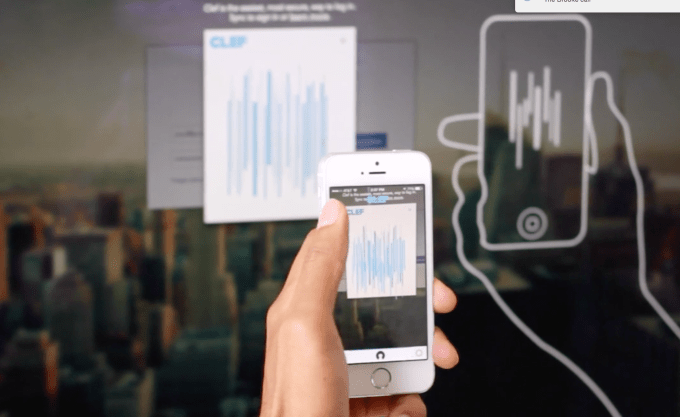The last year has been full of security breaches that have shown the importance of having strong safeguards for our data. As we put more personal and private information in the cloud, there are ever more avenues of attack to reach the things we’d like to keep to ourselves.
One popular defense you can use to bolster data security on most services is two-factor authentication. Basically, it lets you force an app accessed on a PC to verify that it’s actually you trying to sign in by reaching out on the computer that’s always on you: your smartphone.
Most major implementations of two-factor authentication send you a randomly generated six-digit code to enter in the app on your PC, with some “device-specific passwords” to deal with when using a service from one company in an app from someone else (something Google Apps for Business users on Apple laptops are likely familiar with).
Oakland-based Clef has designed a two-factor authentication system that cuts out the codes and the time spent entering them. After entering your login information in an app on the web, the app shows an animated wave form generated for this session. On your phone, you open a Clef app, verify it’s you with Touch ID (or a PIN), and then point your phone’s camera at the screen. By scanning the wave form, Clef shows that you’re actually sitting there in front of the app, and it’s all done in seconds.

Clef’s primary verification method requires access to data on your phone, which means you’ll be able to use it when connected to Wi-Fi but don’t have a cell signal, as opposed to SMS-based codes. And if you don’t have access to data on your phone but do on your laptop (say, on a flight where Wi-Fi is bought for individual devices), there’s a fallback method that scans your phone’s screen using the laptop camera.
After demoing Clef’s login system for the video above, Clef CEO Brennen Byrne and I chatted about Clef’s current momentum. More than 40,000 sites have signed up to use their two-factor authentication system, and having just graduated from StartX’s most recent class of companies, Clef is now working on growing its engineering and marketing staff to bring in more clients with bigger user bases.